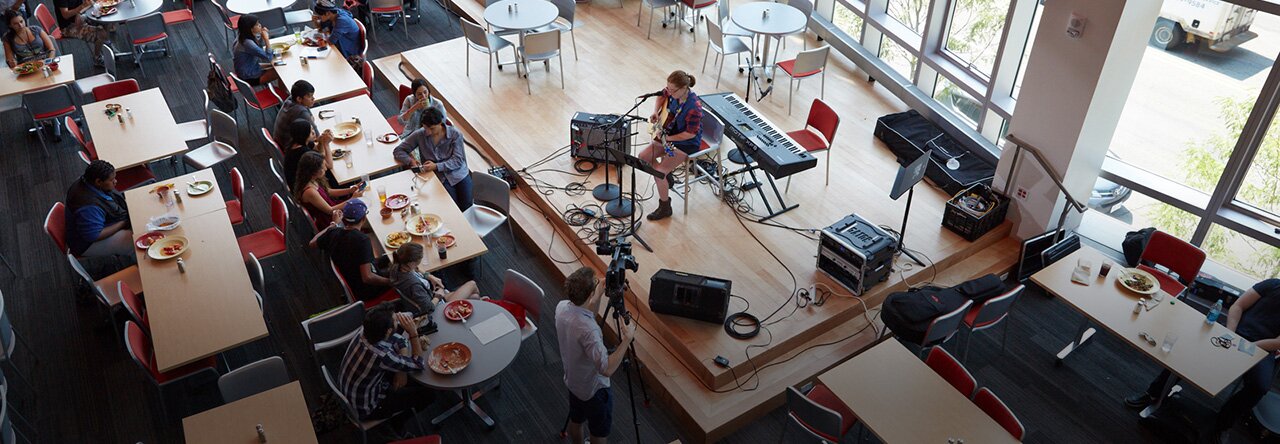Henry Tate, a professor in the Liberal Arts Department, recently passed away. The following letter to the Berklee community was written by Jay Kennedy, vice president for academic affairs/provost.
 Dear Berklee community,
Dear Berklee community,
It is with much sadness that I write to tell you that Henry Tate, professor and long-time Berklee faculty member in the Liberal Arts Department, has passed away. We are not sure when he died, only that his neighbors found him yesterday.
Henry was a Berklee legend, a great teacher, and an inspiration to many students particularly around the subject of art. He began teaching at Berklee in 1985 and retired last year. Simone Pilon, chair of the Liberal Arts Department, writes, “He was an exceptional teacher, a compelling storyteller, and one of the kindest, gentlest people I have had the pleasure to know. He touched countless students and colleagues during his time at Berklee. He will be greatly missed.”





